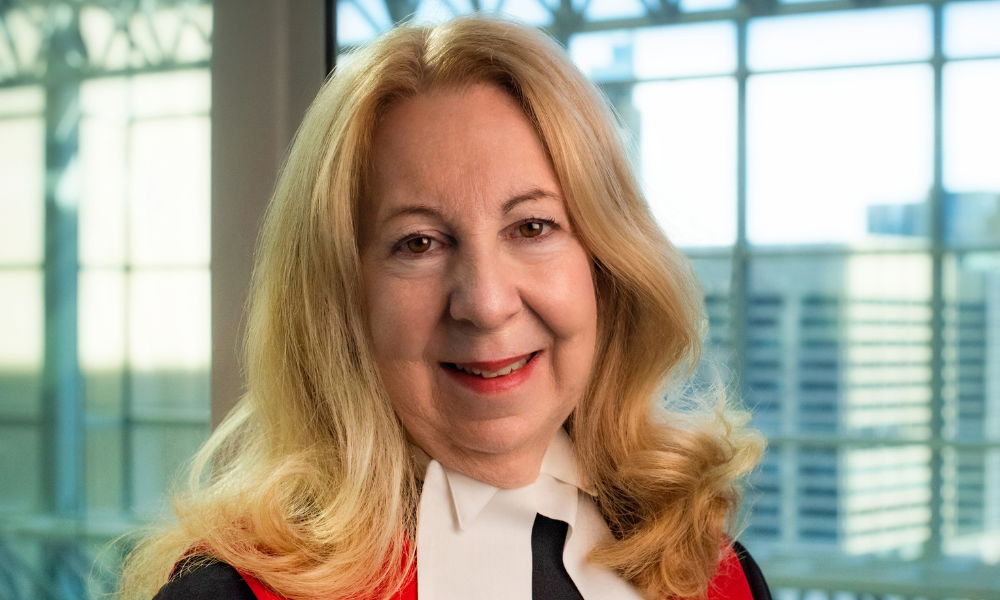Her legal background includes experience in criminal law, language rights, and constitutional law

Prime Minister Justin Trudeau has nominated Chief Justice of Alberta’s Court of King’s Bench Mary Moreau as the next Supreme Court of Canada justice.
Moreau, who is francophone and was her court’s first female chief justice, will fill the vacancy left by the resignation of Russell Brown in June. Moreau has led her court since 2017 and has been a judge for 29 years, joining the Court of King’s Bench in 1994.
“The thing that strikes me more than anything is that she is such an experienced jurist,” says Andrew Bernstein, a litigator and appellate lawyer at Torys LLP in Toronto. “Some of the more recent appointments have been wonderful people who don't necessarily have a long career in the judiciary.”
In addition to an exceptional legal and analytical brain, he says, Moreau brings to the court a long career of understanding what it’s like to be a trial judge. Following the retirement last year of Justice Michael Moldaver, a criminal law expert, Bernstein says it is not surprising that the Prime Minister has chosen a candidate with a criminal law background.
“You don't need nine judges with that perspective, but you certainly need some judges with that perspective… It's really important to understand – especially in criminal law – what happens in a trial.”
“I think she's a wonderful appointment,” he says. “And I think this is one that is going to get a lot of unanimous support from the legal community.”
In 2019, the University of Alberta granted Moreau an honorary Doctor of Laws. Paul Paton was dean of the school’s law faculty at the time and told Canadian Lawyer that Moreau stands out for the “unheralded” but “extremely important” administrative role of judges. Like former Chief Justice of Alberta Catherine Fraser, Moreau tried to modernize the courts and make them more accessible, says Paton, now Dean of Law at Chapman University in California.
Moreau and Fraser moved “court processes from quill-pen and paper – or what seemed like it – into a system that is far from perfect but certainly lightyears beyond where it was,” he says.

Paul Paton, Andrew Bernstein
As chief justice, Moreau also encouraged alternate conflict resolution, enhanced the courtroom booking system, and aided the expansion of court facilities, according to the University of Alberta’s announcement of her honorary degree.
Moreau is a graduate of the University of Alberta’s class of 1979. She practised criminal, family, and constitutional law in Edmonton before her appointment to the bench. As a lawyer, she litigated numerous cases dealing with minority language rights and the Charter. These included R. v. Paquette in 1987, which dealt with the right to a criminal trial in front of a French-speaking jury, and R v. Mahé, which concerned access to education in French. She also co-founded l’Association des juristes d’expression française de l’Alberta (Association of French-speaking Jurists of Alberta).
“Her work in criminal and constitutional law, and language rights in particular, will be of special importance, given the focus of the majority of cases at the Supreme Court,” says Paton.
“Justice [Russel] Brown, of course, brought a unique and special focus on civil and business matters,” says Paton. “Her strengths will be in different areas. But that deep experience, both in her practice and on the trial bench, I think, will serve Canadians very well.”
The House of Commons Standing Committee on Justice and Human Rights will convene a special committee hearing on Nov. 2 to assess the Prime Minister’s nomination. Attorney General Arif Virani and Wade MacLauchlan, chair of the Independent Advisory Board for Supreme Court of Canada Judicial Appointments, will present to the committee how and why Moreau was selected, said the PM’s announcement.
“For the first time in its 148-year history, and 41 years after the Honorable Bertha Wilson became the first woman appointed to the Supreme Court of Canada, a majority of women will be sitting on the bench of the highest court in our judicial system,” said Canadian Bar Association president John Stefaniuk. “Justice Moreau’s nomination represents an important step forward for gender equality. The CBA considers that Justice Moreau will be a great asset to the Supreme Court of Canada, and we look forward to working with her.”









